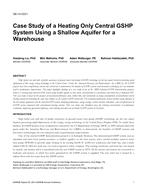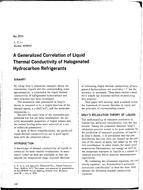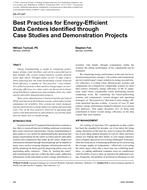This paper presents a procedure for analyzing and optimizing the design of a ventilation run-around heat recovery system for a given set of operating conditions of airflow, temperature, and humidity. The anslysis and computer simulation includes some comparisons with measured data from an existing system and a study of the design sensitivities of the most important design variables. It was found that the design parameters that influenced the glycol Reynolds number are the most important, whereas the air Reynolds number only played a minor role.
The optimum design is considered to be that which minimizes the summation of operating and capital costs and negative energy recovery costs of the run-around system. A numerical search, or nonlinear programming optimization technique, was used to solve the run-around system design problem. It is expected that the optimization technique reported herein will lead to better designs of run-around systems provided accurate costs and physical performance correlations are used in the model.
Units: Dual
Citation: ASHRAE Transactions, 1988, vol. 94, pt. 2, Ottawa
Product Details
- Published:
- 1988
- Number of Pages:
- 21
- File Size:
- 1 file , 1.6 MB
- Product Code(s):
- D-OT-88-3175


